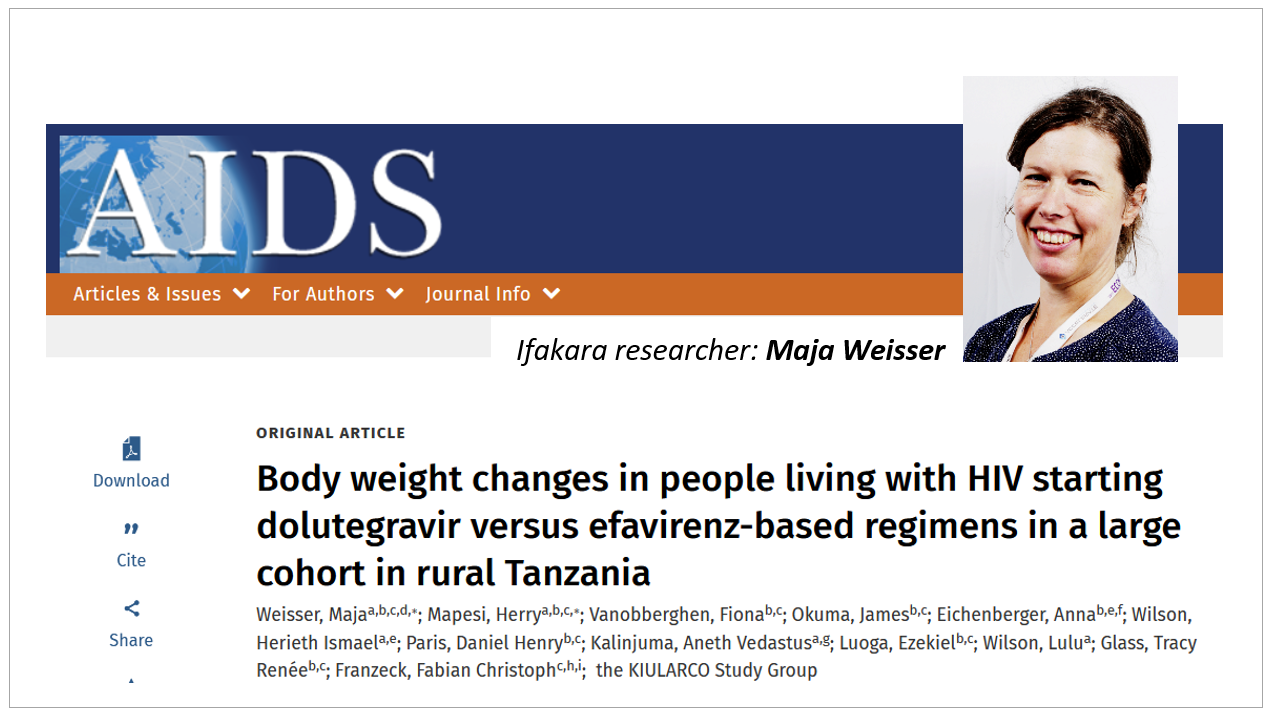
WELLNESS: New study suggests HIV drugs can lead to weight gain

A recent study in Tanzania tells us something important about medicines used for treating HIV – technically called anti-retroviral therapy (ART). Researchers looked at how two different HIV medications affect people's weight.
In this groundbreaking longitudinal study from the heart of rural Tanzania, scientists from the Ifakara Health Institute and partners shed new light on the effects of ART on weight changes among people living with HIV (PLHIV).
The study, conducted through the Kilombero and Ulanga Antiretroviral Cohort (KIULARCO), has shown that individuals on dolutegravir-based ART experience more significant weight gain compared to those on efavirenz-based treatments.
The study's groundwork
The study aimed to analyze the differences in weight gain between two widely used ART regimens in an area where undernutrition is a common challenge. Focusing on adult, ART-naïve, and non-pregnant PLHIV, researchers observed changes over 18 months after the initiation of either efavirenz (Dec 2016 - Feb 2019) or dolutegravir (Mar 2019 - Dec 2022) based ART.
What they found
On weigh gain: People taking a newer HIV drug called dolutegravir gained more weight than those taking an older drug, efavirenz. After about one and a half years, those on dolutegravir gained around 5 kilograms, while those on efavirenz gained about 4 kilograms.
Who gained more? Men, people aged 30 to 49, and those with stronger immune systems (higher CD4 counts) saw bigger differences in weight gain.
On health risks: The study also found that more people on dolutegravir became obese and had higher blood pressure. This means they might need to watch their diet and exercise more to stay healthy.
Why it matters
This study is important because it shows that while HIV medicines can control the virus very well, they can also change how our bodies work, like making us gain weight. This can be good because it might mean people are getting healthier, but it also means doctors need to check more than just the virus - they need to look at overall health too.
What's Next?
Doctors might start giving advice on nutrition or suggest exercise for people on these medications. Also, more research will help us understand how to adjust treatments to keep people as healthy as possible without unwanted side effects.
For many in rural Tanzania, where nutrition can be a challenge, these findings could change how HIV is managed, ensuring treatments help without harming in other ways.
About KIULARCO
The Kilombero and Ulanga Antiretroviral Cohort is one of Tanzania's leading cohorts for HIV research, providing essential data on the effectiveness and impact of ART in a real-world setting. This cohort is a collaborative effort between the Ifakara Health Institute and partners, including the Ministry of Health, Tanzania and the Swiss TPH, Switzerland.
>> For more information about the study or to read the full research paper, visit here.
